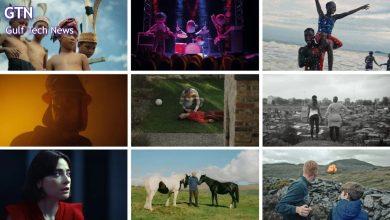Saudi Arabia maintains its global position in Nature Index 2021 Annual Tables, despite pandemicSaudi Arabia maintains its global position in Nature Index 2021 Annual Tables, despite pandemic
Riyadh:gulftech
In the Nature Index 2021 Annual Tables, as measured by the metric, Share*, Saudi Arabia is again well ahead of other Arab countries1 in research share, and the only country alongside United Arab Emirates (UAE) to make the top 50 global countries list 29th and 44th respectively. Like many larger nations including the United States and UK, Saudi Arabia has managed to slow the decline in research output of the previous year, and maintained its position globally as the highest contributor to research share in the Arab World and second highest in both Western Asia and MEA2 countries on this year index. It is also the only other Arab country alongside UAE to make the top 50 countries in all four specialties of the measured natural science journals, and the highest contributor in respective research share (tables below).
This year’s Nature Index Annual Tables include seventeen Arab countries with Saudi Arabia, UAE and Egypt still holding the top three positions respectively since 2017, and the Kingdom delivering 64% of the overall research share in the Arab World. Egypt maintains its first position in North Africa2 and second in Africa.
The Nature Index 2021 Annual Tables show that despite the challenges and limitations due to the COVID-19 pandemic, the institutions that were strong in 2019 remained strong in 2020. Among those in the Arab countries by far the top performer is the King Abdullah University of Science and Technology (KAUST) that moved up in both among all institutions and academic institutions, from 131st to 125th place, and 118th to 113th, respectively.
KAUST has had the highest research share in the Arab countries for the past five years and accounts for more than 50% of Arab institutions shares’ combined. This demonstrates the significant amount of high-quality research being published by this institution and makes it an undisputable leader in both Saudi and regional research shares.
David Swinbanks, Founder of the Nature Index, said: “Despite the impact of COVID-19 in terms of lab closures and disruptions to experiments, our analysis indicate continued strength of research output in the Arab World with article share maintained or increased for the majority of countries in the region. Saudi Arabia continues to lead the Arab countries, and KAUST continues to outshine all other institutions in the region with its rapid rise up the global ranks”.
The performance of KAUST is truly remarkable. Since 2016, this academic institution alone has been delivering more than 75% of the Saudi institutions shares’ combined. Particularly in Chemistry, it remains the most prolific university in Western Asia and MEA regions and the only one in the top 100 institutions with a jump of 20 positions up and an 11.7% growth in adjusted Share**. This shows the adaptability of KAUST to perform extremely well alongside some of their more established and larger peers in challenging conditions.”
Another two Saudi academic institutions worth monitoring closely are King Faisal University (KFU) and King Saud bin Abdulaziz University for Health Sciences (KSAU-HS). KFU is now fifth in the academic institutional list across the Kingdom after delivering a great growth in adjusted Share in 2020 that equals six times the value in 2018. KSAU-HS has maintained a steady growth albeit small in its entire research share, research count and adjusted Share for the fourth year in row.
The list of achievements of Saudi Arabia and KAUST includes –
o Saudi Arabia
(with the highest Arab country share in each subject)
§ 29th top 50 global countries in research share
§ 25th top 50 global countries in Chemistry
§ 30th top 50 global countries in Physical sciences
§ 31th top 50 global countries in Earth and Environmental
§ 37th top 50 global countries in Life sciences
o KAUST
(as the only institution from the Arab countries) § 113th top global academic institutions in research share
§ 125th top global institutions in research share
§ 77th top institutions / 68th academic institutions – Chemistry
§ 86th top institutions / 70th academic institutions – Physical sciences
By academic institutions in Saudi Arabia, King Abdullah University of Science and Technology (KAUST) is first, followed by King Abdulaziz University (KAU), King Saud University (KSU) and King Fahd University of Petroleum and Minerals (KFUPM), which maintained their second, third and fourth positions respectively over the past four years despite the decline in their adjusted Share in 2020. King Faisal University (KFU) is in fifth place followed by Alfaisal University in sixth, King Saud bin Abdulaziz University for Health Sciences (KSAU-HS) in seventh and Imam Abdulrahman Bin Faisal University (IAU) in ninth place in share. New comers to the top ten list are Najran University in eighth place and Taif University in tenth.
On the Nature Index 2021 Annual Tables, the top 10 Arab countries in order of research share are Saudi Arabia, United Arab Emirates, Egypt, Qatar, Oman, Morocco, Lebanon, Tunisia, Algeria and Kuwait.
The top fifteen academic institutions in the Arab countries, in order of research share, are: King Abdullah University of Science and Technology (KAUST) – Saudi Arabia, Khalifa University of Science and Technology – UAE, King Abdulaziz University (KAU) – Saudi Arabia, King Saud University (KSU) – Saudi Arabia, American University of Beirut (AUB) – Lebanon, University of Nizwa – Oman, Hamad Bin Khalifa University (HBKU) – Qatar, King Fahd University of Petroleum and Minerals (KFUPM) – Saudi Arabia, British University in Egypt (BUE) – Egypt, United Arab Emirates University (UAEU) – UAE, Ain Shams University – Egypt, Cairo University (CU) – Egypt, American University in Cairo (AUC) – Egypt, University of Carthage (UCAR) – Tunisia, and Sultan Qaboos University (SQU) – Oman.
The top ten African countries in order of research share are South Africa, Egypt, Kenya, Morocco, Tunisia, Uganda, Ethiopia, Algeria, Cameroon and Rwanda. Morocco maintained its fourth place while Tunisia moved up five positions to fifth and Algeria from seventeenth to eighth place.
At a global level, the institutions that have retained their positions at the top of the tables include the Chinese Academy of Sciences, Harvard University, the Max Planck Society, the French National Centre for Scientific Research and the Stanford University.
David Swinbanks noted: “While the annual tables are a good indicator of high quality research output in the natural sciences, we encourage readers to use the findings alongside other measures such as metrics that encompass research fields beyond the natural sciences as well as other scientific outputs such as data, software and intellectual property when considering research quality and institutional performance.”
*Nature Index’s signature metric, Share, is a fractional count for an article allocated to an institution, city or country/region that takes into account the proportion of authors on the article whose institutional affiliation is with that institution or location.
**Adjusted Share takes account of a small annual variation in the total number of articles in the Nature Index. For further explanation, please see natureindex.com/glossary.
1 Arab countries on Nature Index 2021 Annual Tables are Algeria, Bahrain, Egypt, Iraq, Jordan, Kuwait, Lebanon, Libya, Morocco, Oman, Palestine, Qatar, Saudi Arabia, Sudan, Tunisia, United Arab Emirates, and Yemen.
2 MEA and MENA refer to the Middle East Africa and Middle East North Africa regions respectively. North Africa countries on
Nature Index 2021 Annual Tables are Algeria, Egypt, Libya, Morocco, Sudan and Tunisia.
Note: The Nature Index is one indicator of institutional research performance. The metrics of Count and Share used to order Nature Index listings are based on an institution’s or country/region’s publication output in 82 natural science journals, selected on reputation by an independent panel of leading scientists in their fields. The Nature Index recognises that many other factors must be taken into account when considering research quality and institutional performance; Nature Index metrics alone should not be used to assess institutions or individuals. Nature Index data and methods are transparent and available under a creative commons license at natureindex.com.




